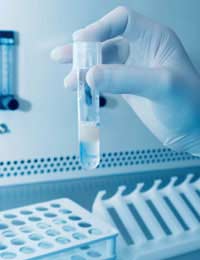A Guide to Endocrinology

Endocrinology is an unfamiliar area of medicine to many people but it is during the menopausal transition that you may begin to think about your hormones, mostly because they are so erratic. Your hormones are chemical substances that are produced by glands known as endocrine glands, which have special effects on many different activities around your body. As you will soon learn, changes in these hormones relate to menopause symptoms that you may be experiencing.
Your Endocrine System
If you think about how complex your body is, you can imagine that a system of glands will be similarly complicated. Your glands are organs that make hormones in your body. In turn, your hormones direct and control many different activities that occur in your body. Hormones have special roles such as governing reproduction and your metabolism of nutrients from food. Not only that, but hormones also affect how you relate to your environment and they ensure you have the energy needed to function successfully each day. There are a number of glands that constitute the endocrine system but in the context of reproduction and menopause, it is important to know about a female's ovaries.
Given the importance of the endocrine system, it is no surprise that there is even a medical specialty for this area, complete with specialised training for doctors to become endocrinologists. An endocrinologist will diagnose diseases and conditions that relate to your glands. They can diagnose hormonal imbalances and provide treatment and support for menopause and menopause-related conditions such as osteoporosis.
Oestrogen and Progesterone
Two endocrine hormones you should know about are oestrogen and progesterone. They are particularly important to understand because during menopause, their levels decrease dramatically, leading to the intense menopausal symptoms that many women experience. Prior to menopause, the two hormones play a vital role in readying a woman's body for pregnancy. Before you experience menopause, most of your oestrogen and progesterone is produced in your ovaries. Afterwards, you will still have these hormones but in much lower levels because other organs produce very small amounts of oestrogen and progesterone.Your Endocrine System, Menopause and Bone Health
Osteoporosis is a disease commonly treated by endocrinologists. Osteoporosis involves a weakened skeletal frame. Hormones in women such as oestrogen serve to protect bones and enhance proper bone metabolism and building of bone. When oestrogen levels decline as a woman approaches menopause, her breakdown of bone can surpass the building of new bone, leading to a loss in bone density. The consequence of a weakened skeleton is that a woman is now more susceptible to bone fractures, particularly of the hip and lumbar spine.Your Endocrine System and Reproductive Organs
Prior to menopause, a woman might need specific support and medical treatment for endocrine problems relating to hormonal levels, which ultimately can affect her fertility. Women may need hormonal replacement to restore their fertility. Other issues related to reproductive organs include Premenstrual Syndrome (PMS), endometriosis, irregular periods and menopause symptoms.Endocrinology is an important area of medicine, particularly for women. This importance is primarily related to reproduction and menopause. Understanding how your endocrine system works can help you to better understand what is happening in your body in the years leading up to menopause, as well as in the postmenopausal time period.
- Why More Women Today Experience Early Menopause
- How Childbirth Affects Menopause Timing
- Lung Cancer and Anti-Oestrogen Drugs
- How Ethnicity Affects Menopause
- Predicting Menopause from the Womb
- Breast Health After Menopause
- HRT and Kidney Stones
- Oestrogen and Vascular Disease
- Cataract Risk from HRT
- Breast Density Changes from HRT
- Body Composition Changes After Menopause
- Follicle Stimulating Hormone and Your Bones
- A Healthy Weight After Menopause
- Better Skin During Menopause
- Conditions Associated with Menopause
- When Does Menopause Occur?
- Menopause and Bone Health
- Chemotherapy and Menopause Link
- Understanding the Sex Hormones
- Menstruation Patterns During Menopause
- Common Menopause Symptoms
- Basics of Female Reproduction
- What Causes Menopause?


Re: How Childbirth Affects Menopause Timing
I have give.live brithday to 10 children but have had a total of 13 prengacy, so my question is can this cause my…
Re: Positive Lifestyle Changes
i m giving councelling for menopause since few months in my gyn opd. this all info.was very imp and useful for me tnanks
Re: Why More Women Today Experience Early Menopause
Poppy - Your Question:Hi I am 42 female'. My periods have suddenly changed. For the past three months…
Re: Why More Women Today Experience Early Menopause
Hi I am 42 female'. My periods have suddenly changed. For the past three months instead of my regular 7…
Re: Soy Isoflavones & menopause
Bo jangles - Your Question:Can I take soy isoflavones along with Evorel 50 patches?I change my patch between every 2-3 days…
Re: Soy Isoflavones & menopause
Can I take soy isoflavones along with Evorel 50 patches? I change my patch between every 2-3 days because it dries out so…
Re: HRT and Migraines
I stopped taking the combined hrt tablet 2 weeks ago on my docs advice. I had been on it for 5 years. I'm 56 years old. Other than a few warm…
Re: HRT and Migraines
i get very up set alot. am stillhaving bad pain. and get very moody as well
Re: Do Your Genes Mean Early Menopause?
i have been having perimenopausal symptoms for a decade with low calcium and osteoarthritis before 40. now am taking…
Re: Treating Hot Flushes with Blood Pressure Drugs
Debbie - Your Question:Hi I had breast cancer grade 3 stage 3 five years ago and had my ovaries taken out…